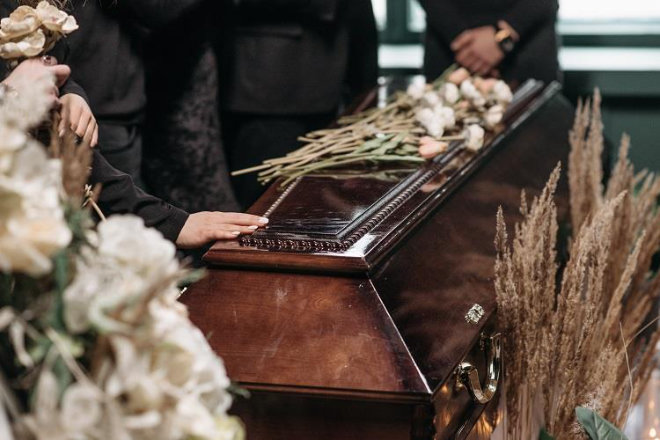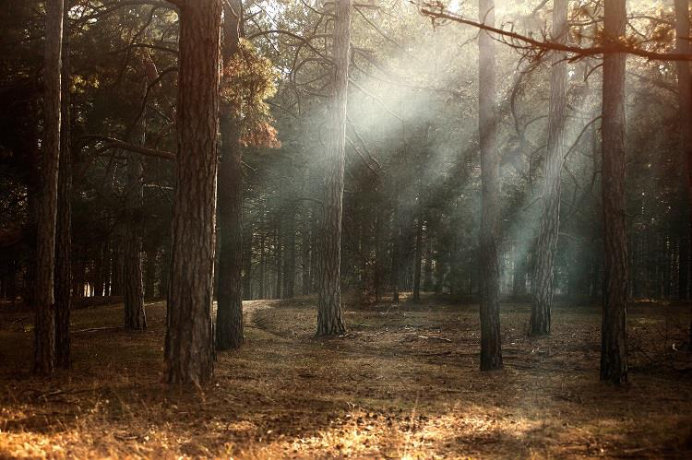
Whilst many funeral services are traditional and include religious aspects, this is no longer the only option available. Many people now opt for a non-religious funeral instead, focussing on remembering the person and celebrating their life. Readings from religious texts, singing hymns or saying prayers are taken out of the service and replaced with non-religious alternatives. Whilst there are no strict rules or customs to a non-religious funeral, they tend to follow a similar format to the more traditional religious services, with a few major changes. Here is our guide to non-religious funerals.
What is a non-religious funeral?
Sometimes referred to as a humanist funeral or simply a celebration of life, a non-religious funeral is a funeral service that pays respect to the loved one who has passed whilst omitting any religious connotations. Whilst a celebration of life can still have religious aspects if desired, atheistic funeral ceremonies do not contain any religious aspects at all and are often chosen for those who did not follow a religion whilst they lived.
The aim of humanist (non-religious) funerals is to focus on the life the departed had led rather than mentioning the afterlife.
Where can non-religious funerals take place?
A non-religious funeral ceremony can technically be held anywhere. Here are just some of the most popular options
- Crematoriums
- Natural burial sites such as a woodland burial site
- Village halls
- Community Centres
- Hotels
- Funeral homes
- Personal homes
- Ceremony chapels
This flexibility enables you to choose the perfect venue for your loved one’s service. If they had a favourite place whilst they were alive, you may want to consider if this is an option to hold the service. Your local funeral director will be able to go through the venue choices with you and find the perfect place.
Wakes are often held in pubs, community centres, social clubs, hotels or your own home. Whichever you are comfortable with and where you think your loved one would have wanted the wake to take place.
Arranging a non-religious funeral
It is important when arranging any funeral that you adhere to the wishes of your loved one. Check to see if they have left any specific requests for their service as they may have blatantly stated whether they want a religious or non-religious funeral. Once you know this information and any other additional wishes, then you are in a good position to start arranging the rest of the service.
Alternative Burial Sites
There are several options available for non-religious funerals. Here are just a few options
Woodland burials

Woodland burials are becoming more popular and are an eco-friendly funeral option. There are several approved woodland burial sites across the country. A coffin or casket that is biodegradable is used which avoids polluting the earth. Whilst woodland burials tend to be cheaper than a traditional or religious funeral, there will be no headstone which is considered a downside to many. Instead, mourning friends and family use the whole woodland area as a memorial place that you can visit due to the fact that a specific burial site is difficult to locate.

Burial at Sea
Sea burials are rare but can still take place for those individuals who had a deep connection to the ocean, such as a member of the navy or a sailor. You need to apply for a special license to have a sea burial in England. They are also some strict regulations around sea burials. For example, they can only take place in specifically designated locations and the deceased must not be embalmed and should wear biodegradable clothes and use a specific coffin. Due to these regulations, it is common for people to spread a loved one’s ashes at sea instead.
Who can officiate non-religious funerals
Whilst you may want to opt for a non-religious funeral celebrant, anyone can conduct a non-religious funeral. For example, a close friend or family member may want to do it. Whilst they may want to conduct the service, you must think about the pros and cons in advance. Yes, it is lovely to have a service led by someone who knew the deceased well and can talk about their life in detail, however, this is a big task to undertake and can be extremely harrowing. Decide whether the person is up for the task before cementing your plans. An official funeral celebrant will have previous experience and can take the stress of running the service away from a family or friend, relieving them of the added pressure.
What is included in a non-religious funeral?
Many of the aspects chosen for a non-religious funeral are similar to a traditional funeral (ie a mixture of readings and songs.)
Poems

You may want to choose a non-religious poem to be read by a loved one. Here are just some of the most popular non-religious poems
- She is gone (He Is Gone)- David Harkins
- Afterglow – Helen Lowrie Marshall
- Let me Go- Christina Rossetti
- To those whom I love and those who love me
- Farewell, sweet dust
- Funeral Blues- W H Auden
- Beyond the Empty Chair
- Turn again to life- Mary Lee Hall
- All is well- Henry Scott Holland
- Do not stand at my grave and Weep- Mary Elizabeth Frye
- Requiem- Robert Louis Stevenson
Non-religious Funeral songs
As non-religious funerals allow a more tailored service in order to celebrate the life of the deceased, many families choose a selection of modern songs to be played at different intervals of the service. Music is an extremely personal choice and is a great way to remember a loved one. It can be overwhelming to choose music on behalf of a loved one. If there are no obvious favourite songs of theirs that you think are suitable, here is a list of some of the most popular songs often played at non-religious funerals
- Bridge over troubled water by Simon and Garfunkel
- You Raise me Up – Westlife
- Supermarket Flowers – Ed Sheeran
- My Way- Frank Sinatra
- Smile- Nat King Cole
- Imagine- John Lennon
- Wind beneath my Wings – Bette Midler
- My heart will go on – Celine Dion
- The Power of Love- Jennifer Rush
- What a wonderful world- Louis Armstrong
- Over the Rainbow- Eva Cassidy
- I will always love you- Whitney Housten
- Someone You Loved- Lewis Capaldi
- Blackbird- The Beatles
- Make you feel my love- Adele
- Goodbye My Lover- James Blunt
- Candle in the Wind- Elton John
If you don’t know where to start with picking music, think about your loved one’s favourite films and see if there are some nice songs you can play from the soundtrack. The music you choose is meant to help celebrate their life and express their personality. So if you think they would prefer an upbeat or even humourous song then feel free to choose this.
If you are torn between what to play you could also create a full playlist of your loved ones favourite songs which you can play during the wake.
What to wear to a non-religious funeral
Even religious funeral services nowadays do not necessarily have a strict dress code or dress etiquette. Although many people still opt for black or dark blue clothing for services, this is not a rule and depends on any specific requests made by the family or organisers of the funeral. Non-religious funerals tend to overall have a less formal dress code. Guests may be asked to wear a particular colour if that was the deceased’s favourite. Alternatively, they may want people to only wear bright colours. Most people will dress respectfully regardless, however, if you want them to wear specific items or colours, then ensure this is made clear.
What transport is used at non-religious funerals
The traditional hearse can still be used to transport the coffin, however, many non-religious funerals opt for something a bit different. Depending on the deceased’s hobbies or interests whilst they lived, this could be represented in their final method of transport. Campervans, Land Rovers, Fire Engines and more have all been used.
Alternative Coffin Designs
Whilst it is relatively a new thing, some people are opting for a non-traditional coffin. A picture of their favourite place, a theme around their favourite sport or hobby or a pattern can be chosen rather than a plain design. You can even put a personalised photo on the coffin instead.
Depending on the beliefs of the individual, funerals today can be either religious or non-religious. It is completely down to personal choice. A large proportion of the UK’s population now does not regard themselves as religious which is why non-religious funerals are now extremely common. Whilst there are similarities to both services, non-religious funerals allow greater scope of flexibility, allowing the people organising the service to make it as tailored to the deceased as possible. They allow the freedom to help celebrate your loved one’s life uniquely. Whichever option is chosen, the service can be adapted to ensure it remains the perfect tribute to your loved one. Your funeral director will have experience with both religious and non-religious services and will be able to offer you advice and provide recommendations to make the process of organising a funeral as easy as possible for you.
Download article as a PDF